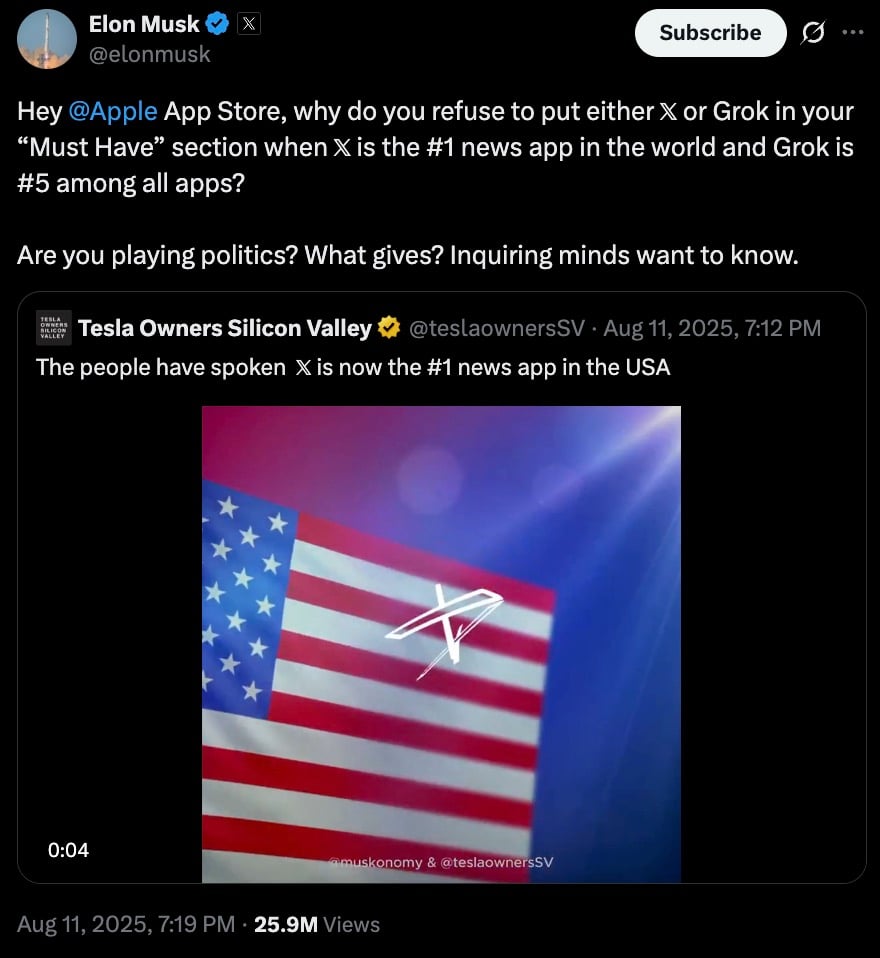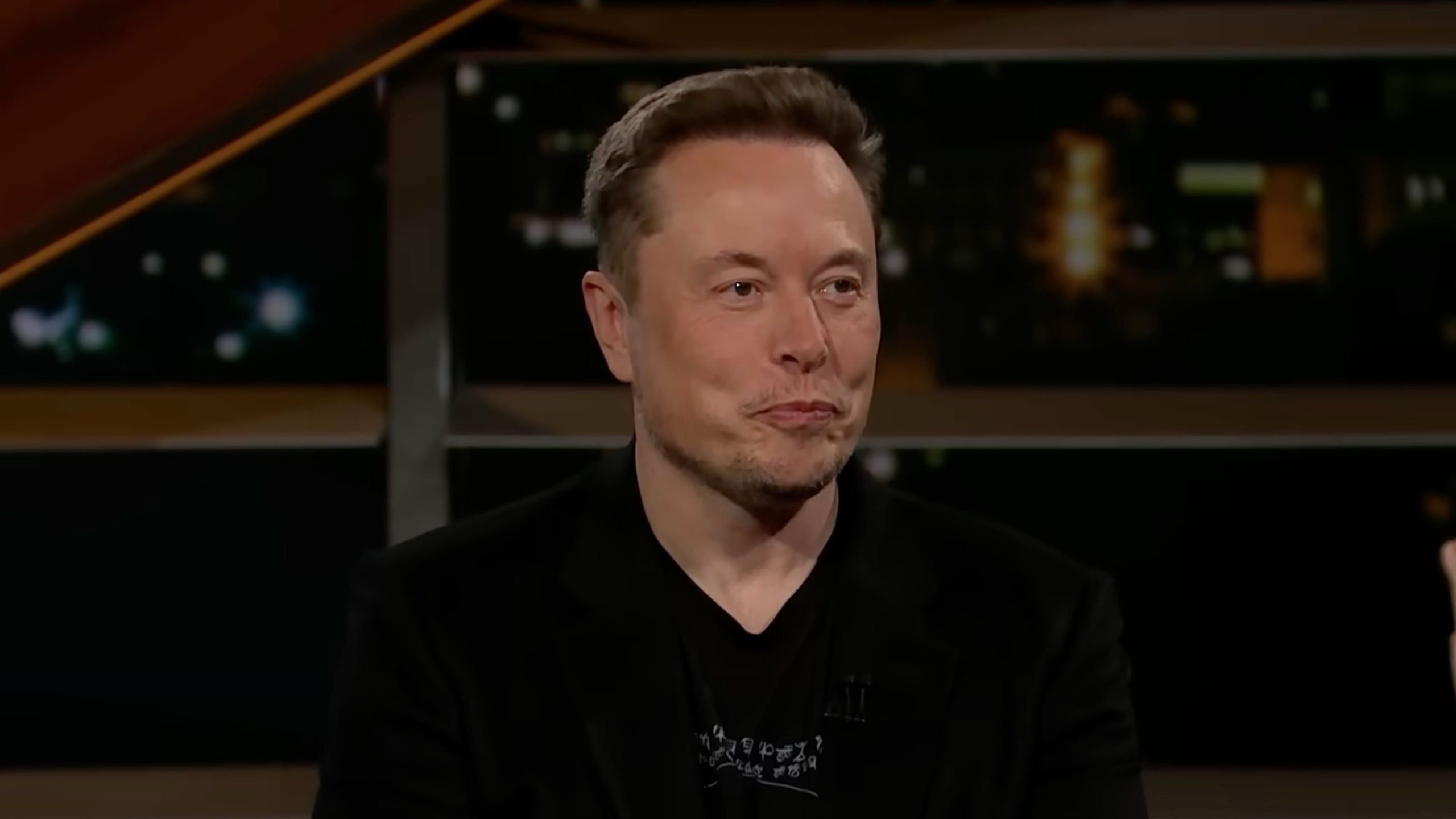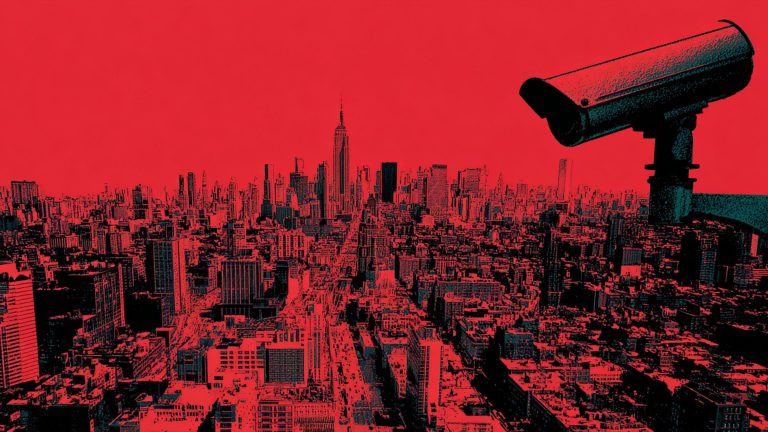X and its artificial intelligence affiliate, X AI, filed a federal lawsuit Monday accusing Apple and OpenAI of colluding to maintain monopolies in smartphones and generative AI chatbots.
“This is a tale of two monopolists joining forces to ensure their continued dominance in a world rapidly driven by the most powerful technology humanity has ever created: artificial intelligence (‘AI’),” the complaint begins.
“Working in tandem, Defendants Apple and OpenAI have locked up markets to maintain their monopolies and prevent innovators like X and xAI from competing. Plaintiffs bring this suit to stop Defendants from perpetrating their anticompetitive scheme and to recover billions in damages.”
The 61-page complaint, filed in the Northern District of Texas, alleges that Apple “has a 65 percent share and has long enjoyed a monopoly” in the smartphone market and that OpenAI “controls at least 80 percent of the market” for generative AI chatbots.
We obtained a copy of the lawsuit for you here.
By exclusively integrating OpenAI’s ChatGPT into the iPhone operating system, the suit claims, “Apple and OpenAI’s exclusive arrangement has made ChatGPT the only generative AI chatbot integrated into the iPhone.”
According to the filing, the partnership deprives competitors like X AI’s Grok of the user data and scale needed to compete. “As a result of Apple and OpenAI’s exclusive arrangement, ChatGPT is the only generative AI chatbot that benefits from billions of user prompts originating from hundreds of millions of iPhones,” the complaint states.
The plaintiffs also accuse Apple of using its App Store to tilt the playing field. “Apple has taken further steps to protect its monopoly in smartphones and to preference OpenAI by deprioritizing the apps of competing generative AI chatbots and super apps in its App Store rankings, and it has dragged out its App Store app review processes for those competitors,” the lawsuit claims.
Unless the court intervenes, X and X.AI warn, “Defendants will continue to thwart competition, and their competitors, like Plaintiffs, will continue to suffer the anticompetitive consequences.”
The lawsuit demands a jury trial and seeks an injunction against Apple and OpenAI’s deal, along with damages “caused—and will be caused—by Apple and OpenAI’s misconduct.”
Before launching his blockbuster lawsuit against Apple and OpenAI this week, Elon Musk had already publicly threatened legal action over the tech giant’s App Store practices.
On his platform X, Musk accused Apple of sidelining both the X social media app and xAI’s Grok chatbot from its coveted “Must Have” section of the App Store.
“Hey @Apple App Store, why do you refuse to put either X or Grok in your ‘Must Have’ section when X is the #1 news app in the world and Grok is #5 among all apps? Are you playing politics? What gives? Inquiring minds want to know,” Musk posted.

He quickly escalated his warning, charging Apple with anticompetitive conduct. “Apple is behaving in a manner that makes it impossible for any AI company besides OpenAI to reach #1 in the App Store, which is an unequivocal antitrust violation. xAI will take immediate legal action.”
Apple’s App Store is under mounting legal and regulatory fire on multiple fronts, with governments, developers, and rivals stepping up challenges to how the company runs its digital marketplace.
In the United States, the Department of Justice and 16 states filed an antitrust lawsuit in March 2024, accusing Apple of monopolizing the smartphone market by “hampering competition” and tightly controlling app distribution and fees. Apple sought to have the case dismissed, but in June 2025, a federal judge allowed it to move forward, setting the stage for a possible trial in 2027.
The company is also still locked in its years-long battle with Epic Games. Epic’s original 2020 lawsuit led to a court order requiring Apple to allow developers to include links to their own payment systems. But in April 2025, courts ruled Apple was in “willful” violation of that injunction, imposing stricter compliance measures and even referring the company for potential criminal contempt.









